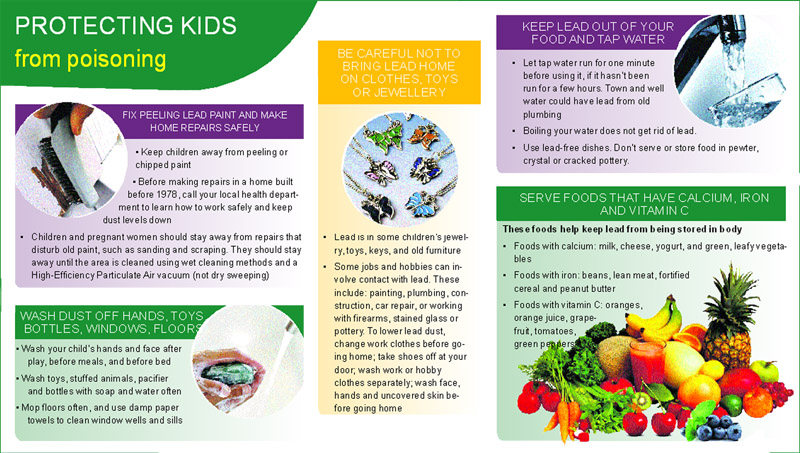Playing outdoors exposes children to lead: Study
KATHMANDU, July 30
Children playing outdoors have increased blood lead level in Nepal, according to a study conducted by the by the National Health Research Council under the Ministry of Health and Population.
According to the findings of ‘Assessment of Blood Lead Level Among Children (6-36 months) in Kathmandu Valley’: Children playing outside were significantly associated with the BLL. “Of 312 children who were involved in the study, 20.3 per cent were found to be often playing outdoors in unhygienic environment. Approximately 25.5 per cent of children playing outside had blood lead level more than 5 micograms per decilitre (mg/dl),” said the findings of the study led by Dr Meghnath Dhimal. The study reported that 9.6 per cent of the children had no lead in blood, 26 per cent had 0.1-5 mg/dl of blood lead level and 64 per cent had blood lead level above 5mg/dl. Similarly, blood lead level was 4.5 times higher in children playing with dust and dirt. No safe blood lead level has been identified and even low level of lead in blood has been shown to affect intelligence quotient (IQ), ability to pay attention and academic achievement.
Children belonging to the Dalits, disadvantaged indigenous nationalities and non-Dalit Tarai caste groups and religious minorities were found to have 3.4 times higher blood lead level compared to others, said the findings. US-based Centres for Disease Control has recommended 5 mg/dl to identify children with detected blood lead level.
Drinking water from lead pipe, toys, soil, lead-based paint and contaminated dust are major source of lead. A total of 312 children from the department of paediatrics of TU Teaching Hospital (104), Patan Hospital (104) and Siddhi Memorial Hospital, Bhaktapur (104) were studied after taking the consent from the parents.
“As lead in the blood during childhood can have adverse health effects on a child’s cognitive function, academic performance and endocrine system, there must be policies to reduce level of lead in the environment,” the study has suggested. It has recommended that the government encourage parents to identify lead hazards in their homes and environment and to protect them from exposure to lead, besides warning the parents about the dangers posed by unsafe environment while playing outside.






